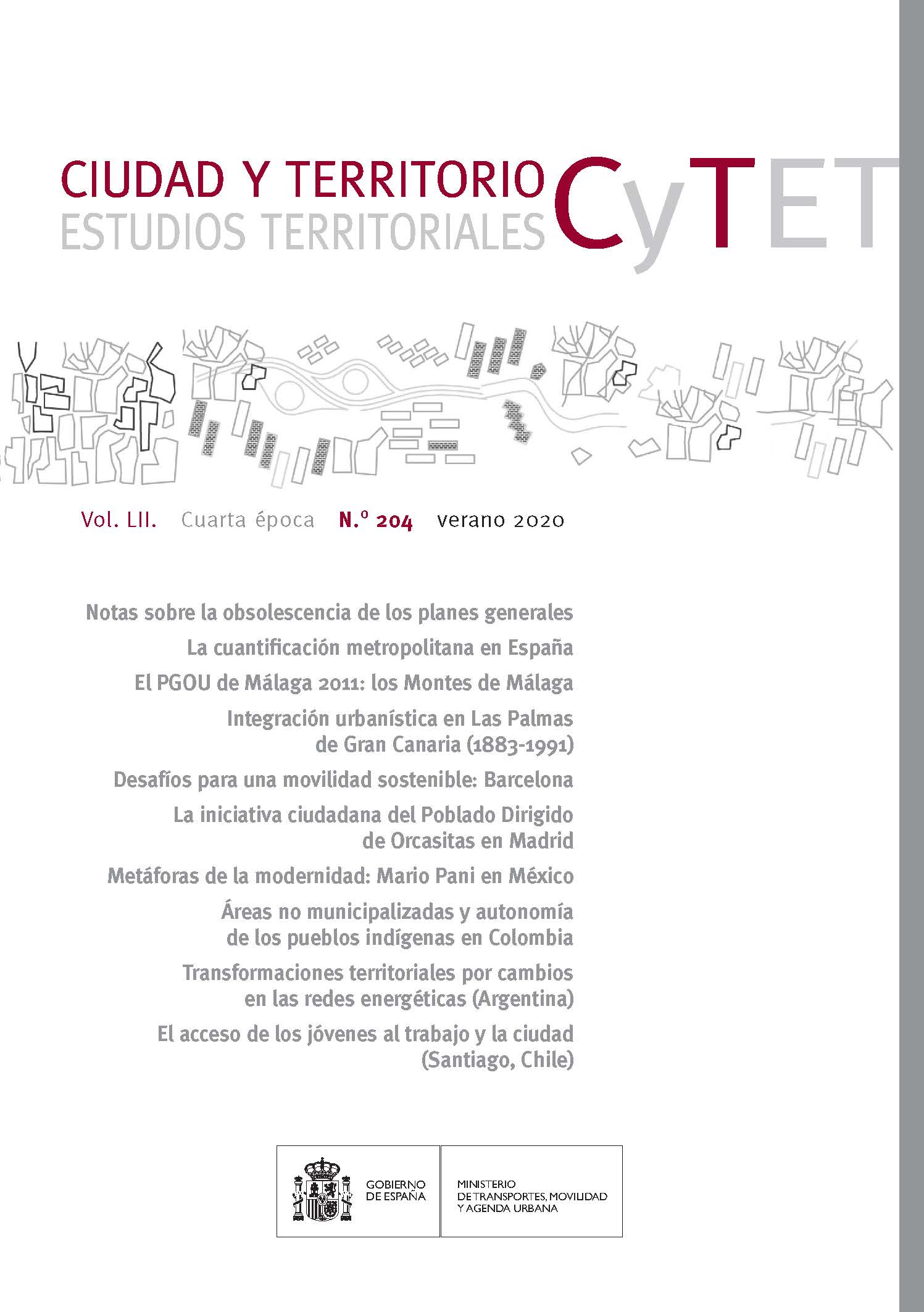Territorial transformations through changes in the energy networks in the 21st century. The case of the Bahía Blanca-Coronel Rosales port area (Argentina)
DOI:
https://doi.org/10.37230/CyTET.2020.204.09Keywords:
Non-conventional energy, Networks, Territorial transformations, Bahía Blanca-Coronel Rosales port areaAbstract
Historically, the need to meet the growing demand for energy, coupled with technological advances in the field of energy infrastructures, has been the cause of various territorial transformations in the world. In the 21st century, in order to compensate for shortfalls in the energy system, Argentina bets on non-conventional energy projects -renewable and non-renewable- by introducing state incentives. This triggers a new dynamism not only in areas where there are resources, but also in those which provide the inputs, infrastructure and services required for their use. By means of a mixed methodology of quantitative-qualitative nature, using documentary and statistical sources, this paper seeks to examine territorial transformations induced by changes in energy networks, focusing on the study of the port area of Bahia Blanca-Coronel Rosales. The competitive advantages in port infrastructure and services offered by the analyzed area make it a strategic logistical node against current demands.
Downloads
Published
How to Cite
Issue
Section
License
Copyright (c) 2020 Luciana Vanesa Clementi, María Sofía Villalba

This work is licensed under a Creative Commons Attribution-NonCommercial 4.0 International License.
Considering the provisions of the current legislation on Intellectual Property, and in accordance with them, all authors publishing in CyTET give -in a non-exclusive way and without time limit- to the Ministry of Transport, Mobility and Urban Agenda the rights to disseminate, reproduce, communicate and distribute in any current or future format, on paper or electronic, the original or derived version of their work under a Creative Commons Attribution-NonCommercial-NoDerivative 4.0 license International (CC BY-NC-ND 4.0), as well as to include or assign to third parties the inclusion of its content in national and international indexes, repositories and databases, with reference and recognition in any case of its authorship.
In addition, when sending the work, the author(s) declares that it is an original work in which the sources that have been used are recognized, committing to respect the scientific evidence, to no longer modify the original data and to verify or refute its hypothesis. Author(s) also declare that the essential content of the work has not been previously published nor will it be published in any other publication while it is under evaluation by CyTET; and that it has not been simultaneously sent to another journal.
Authors must sign a Transfer of Rights Form, which will be sent to them from the CyTET Secretariat once the article is accepted for publication.
With the aim of promoting the dissemination of knowledge, CyTET joins the Open Journal Access (OA) movement and delivers all of its content to various national and international indexes, repositories and databases under this protocol; therefore, the submission of a work to be published in the journal presupposes the explicit acceptance by the author of this distribution method.
Authors are encouraged to reproduce and host their work published in CyTET in institutional repositories, web pages, etc. with the intention of contributing to the improvement of the transfer of knowledge and the citation of said works.








 Enlace a CyTET en Linkedin
Enlace a CyTET en Linkedin